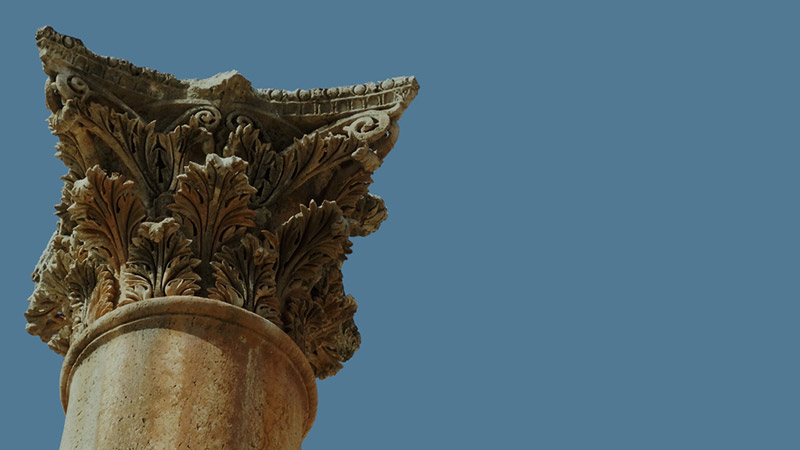More Results
Showing 12 of 318
Articles

City of Great Kings
Jerusalem was a fitting place for Jesus, the greatest king of all, to live out the final moments of his life.Jerusalem held deep cultural and religious significance for the Jewish people. Many of their great leaders, David, Solomon, Hezekiah, reig...
MOREEncyclopedia

City Kings
The American concept of a king is usually negative. The Revolutionary War experience prompted most Americans to view kings as tyrants who cared little for the common person.Not all bad This view of kingship would not have been shared by most ancie...
MORE
City Life
Most cities from the biblical period were fairly small, and people lived in closely knit, well-defined communities. Jerusalem of David's time covered 9-10 acres with a population of 1,500-2,000 persons. Jerusalem during Jesus' time occupied about ...
MORE
Clever Counterfeits
The False Claims of the CultsEach of the cults in Pergamum was a counterfeit, a clever copy of the things that God alone provides. Each god took credit or honor away from God, thus giving it to something human or of human invention. False Gods ...
MORE
Cliff at the Garden Tomb
Cliff at the Garden Tomb This cliff face is located just outside the garden tomb. It was originally a quarry, but the rock quality was poor. It is just outside the city of Jerusalem, near the main gate. The area in front of the cliff was probably ...
MORE
Column Style and Fresco Panels on Masada
The photograph here displays a column style used by Herod on Masada. The columns were made of sandstone pieces that were plastered to look like fluted columns. When new, they probably looked like polished limestone or even marble. In the same plac...
MORE
Commerce
Commerce was an important part of ancient life, allowing people from various regions to trade with each other and acquire needed supplies.Occupations varied from place to place. In fertile areas, agriculture thrived. In the wilderness, shepherds r...
MORE
Confronting Evil
The CityAncient Beth Shemesh guarded the Sorek Valley of Israel's Shephelah; a place where the pagans and the Israelites often interacted.Beth Shemesh stands in Israel's Shephelah;foothills lying between the coastal plain and Judea Mountains. Seve...
MORE
Confronting the Hellenism of Today
Confronting the Hellenism of Today "Man," said the Greek philosopher Protagoras (481-411 BC), "is the measure of all things of what is and what is not." This philosophy provided the foundation for Hellenism, which was devoted...
MORE
Covenants
FormIn order to make sense of covenants, people followed a certain pattern that governed the content and form of a covenant. A summary document representing the entirety of the relationship was usually provided. As the superior party, God alone de...
MORE


















